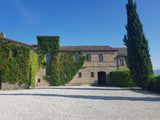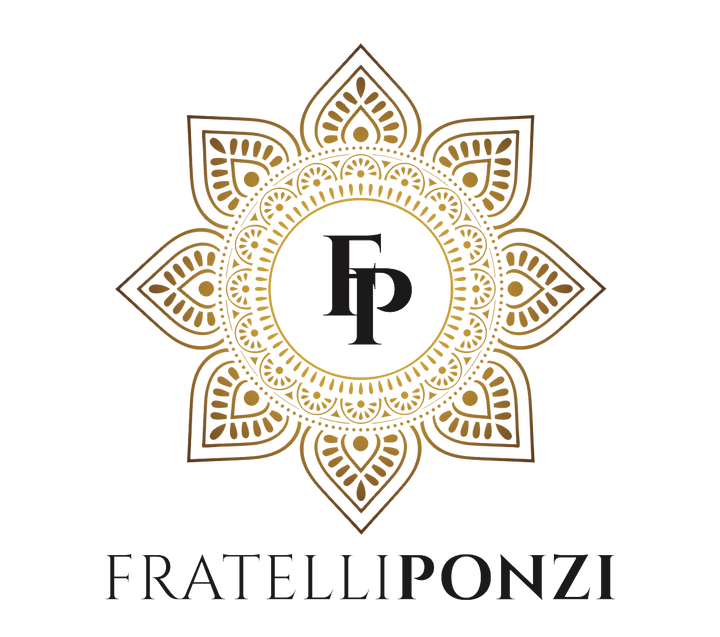Authentic 100% Italian Extra Virgin Olive Oil & Organic Pasta - Available at store location only.
␡September 13, 2013
 Buongiorno! We love hearing from our friends, customers and prospective clients. Recently someone asked if I could clarify the definition of sustainable farming as we have described on our website. With all the marketing messages targeted towards consumers, it's often confusing and a quagmire of information to filter. So, to shed a little light on the subject, today's blog features the definition of sustainable farming, why it's important and how it specifically applies to our product, Casal Cristiana Extra Virgin Olive Oil, here in Italy. Sustainability means in this instance that through proper tree care such as adequate pruning, weed control such as tilling or cutting and soil maintenance through rotating crops, the trees require a minimum if any human or chemical intervention for quality fruit production. It is also a holistic approach to farming through natural resource conservation and production of agriculture as compatible goals.
Buongiorno! We love hearing from our friends, customers and prospective clients. Recently someone asked if I could clarify the definition of sustainable farming as we have described on our website. With all the marketing messages targeted towards consumers, it's often confusing and a quagmire of information to filter. So, to shed a little light on the subject, today's blog features the definition of sustainable farming, why it's important and how it specifically applies to our product, Casal Cristiana Extra Virgin Olive Oil, here in Italy. Sustainability means in this instance that through proper tree care such as adequate pruning, weed control such as tilling or cutting and soil maintenance through rotating crops, the trees require a minimum if any human or chemical intervention for quality fruit production. It is also a holistic approach to farming through natural resource conservation and production of agriculture as compatible goals.
The most important factors for property are sun, air, soil and water. Of the four, water and soil quality are most amenable to human intervention through time and labor. It’s important to note that the Marche region has little or zero industrial pollution in its streams, lakes and sea. It is naturally pure due to the fact that there is not manufacturing or dense population in this zone.  To zoom in further geographically, our trees grow on the Fermana coast, terroir that is mainly dedicated to agriculture, national reserves and an uninterrupted coastline along the Adriatic for 30 miles. Sustainable farming methods are successful when the farmer is provided with a quality natural environment.
To zoom in further geographically, our trees grow on the Fermana coast, terroir that is mainly dedicated to agriculture, national reserves and an uninterrupted coastline along the Adriatic for 30 miles. Sustainable farming methods are successful when the farmer is provided with a quality natural environment.
To dive further into the farmer and/or producers role in caring for the land and creating a quality product is execution of the byproduct or waste. Once the olives are "juiced' into oil, there is a byproduct of ground pits and skins. We utilize this byproduct as an energy source for pellet stoves. In addition, after the oil and water are separated in production, the natural water from the olive is taken back to the orchard to use as fertilizer, replenishing the tree and soil with its nutrients.
For sustainable farming practices, it is important to grow crops that are conducive to its zone. Hence, the reason why olives thrive with zero or minimal intervention in the Marche on the Adriatic. The Italians hesitate to claim “organic” on their labeling for a few reasons.
We look forward to answering more questions, so please contact us! We would love to hear from you!
May 27, 2018

May 17, 2018
 In one day, our server's pedometer logged 16 miles within our restaurant hustling food and drinks to our celebratory guests. Whether its an engagement announcement, birthday, Mother's Day, work lunch or it's a "I am treating myself" moment, we are in the business of happiness with great food in a beautiful and relaxing environment and an upbeat team to make it all happen.
In one day, our server's pedometer logged 16 miles within our restaurant hustling food and drinks to our celebratory guests. Whether its an engagement announcement, birthday, Mother's Day, work lunch or it's a "I am treating myself" moment, we are in the business of happiness with great food in a beautiful and relaxing environment and an upbeat team to make it all happen.May 07, 2018

